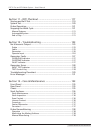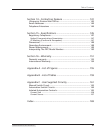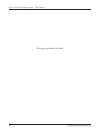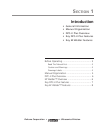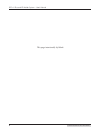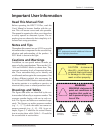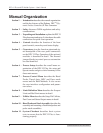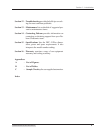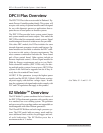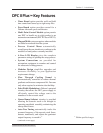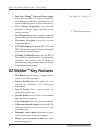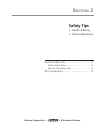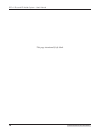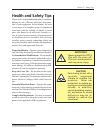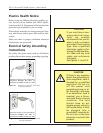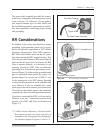
6
Dukane Manual Part No. 403–566–01
DPC
™
II Plus and EZ Welder System – User’s Manual
DPC II Plus Overview
The DPC™ II Plus is the newest model in Dukane’s Dy-
namic Process Controller product family. This system will
accept a wide variety of optional modules and is designed
for use with ultrasonic presses or applications that re-
quire the use of hand probes or thruster systems.
The DPC II Plus provides basic system control inputs
and system monitor and status outputs. This makes the
DPC II Plus ideal for automated control systems. Signal
conditioning and electrical isolation are also provided.
Like other DPC models, the II Plus includes the same
internal ultrasonic generator circuitry and features. Op-
tional modules are available to enhance the DPC’s abil-
ity to meet a wide variety of process requirements. The
most common combination includes the Timer board
and a Press control board. Other options include an
Remote Amplitude control, a Power Signal module for
Weld–by–Energy requirements and up to two Multi–
Probe controller modules (DPC II Plus only) for driv-
ing multiple probe systems. In most cases, DPC II Plus
systems in the field can be upgraded on-site if they al-
ready have the standard Timer board.
All DPC II Plus generators (except the highest power
models) and the EZ/EZ–X Model 1000 feature a univer-
sal power supply with dual line–voltage
1
input.
In addi-
tion, the equipment is designed and tested to comply with
FCC and CE regulations that apply to this product.
EZ Welder
™
Overview
The EZ Welder
™
system combines the best features of
the DPC II Plus ultrasonic generator with a quality press
in a matched, low–cost welding system. The generator
and press are sold as a package and are not upgradable or
interchangeable with other Dukane generators.
The EZ and EZX Welders are both single–pressure sys-
tems. The EZX model adds an energy mode and fea-
tures additional limit switches for pretrigger and end–
of–weld indication. The EZ Welder press has a
maximumstroke of 5–inches.
1
See Tables 15—I and 15—II



